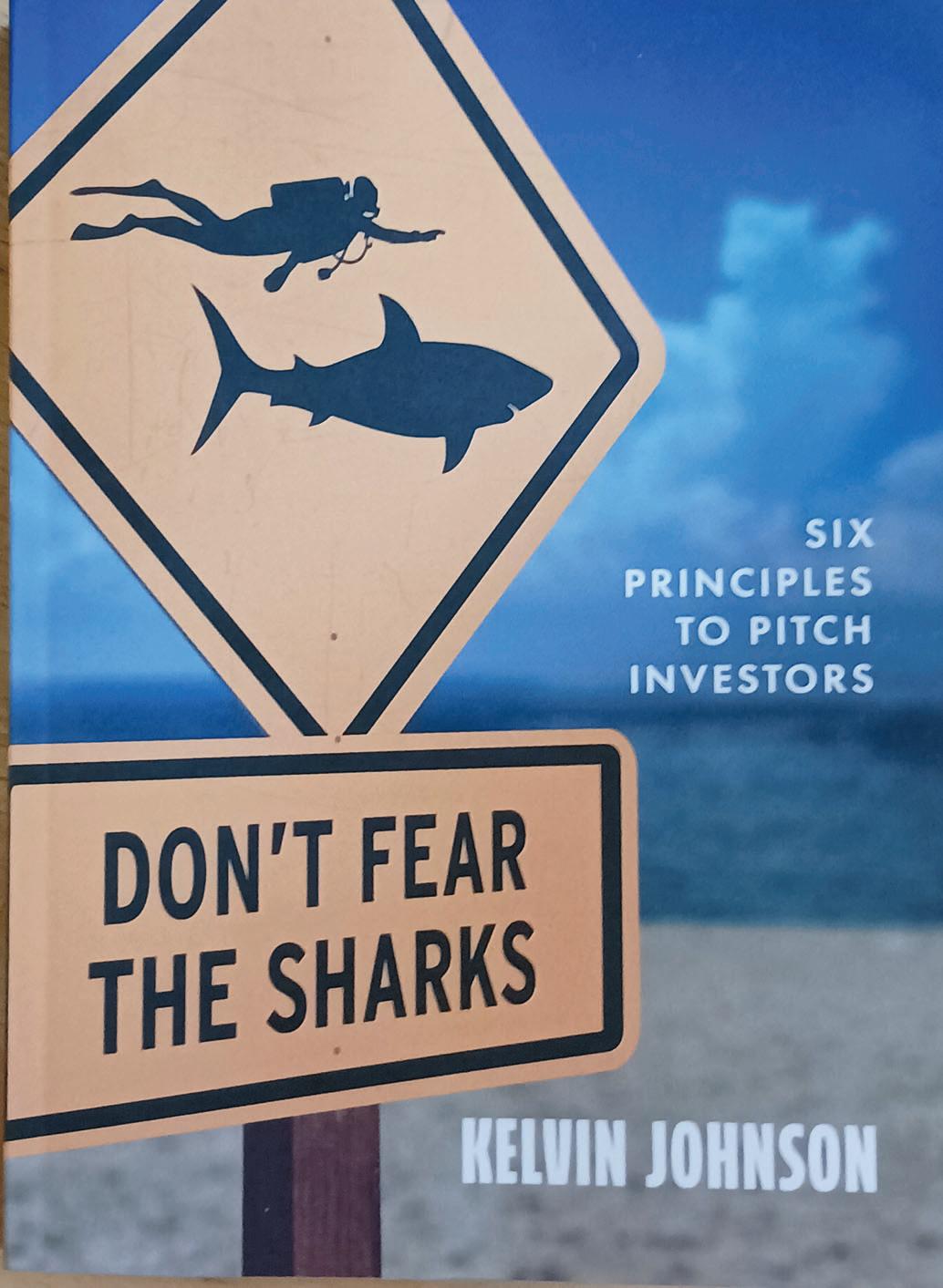
4 minute read
Six Principles to Pitch Investors
By: W.D. Foster-Graham Book Review Editor

DON’T FEAR THE SHARKS Six Principles to Pitch
Investors
By Kelvin Johnson
“It is better to be prepared for an opportunity and not have one than to have an opportunity and not be prepared.” – Les Brown
Many of us have watched the reality show Shark Tank, where new entrepreneurs pitch their business products and services to the four Sharks with the goal of securing investment capital from them. As African Americans, building our own businesses is essential to our communities. Having a sound business plan and making the most persuasive pitch to investors is the basis for Kelvin Johnson’s company and his book Don’t Fear the Sharks.
Johnson’s road to entrepreneurship began in Pennsylvania with a postgraduate position as a certified public accountant (CPA), which transitioned into management consulting and later a director of operations for a tech company. These experiences spurred his desire to become a CEO of his own company and culture; this company is now known as Brevity, an artificial intelligence software product designed to help create the pitches and presentations that attract investors.
He acknowledges the miniscule (less than 1%) venture capital investments given to BIPOC businesses, which he used as fuel for rather interference with his goals. Before making a pitch, doing your homework and the research is a given, not an option. With his six core principles and through testimonials, he outlines the process of the pitch and the post pitch:
1) validate your key assumptions
2) anticipate the post pitch
3) know your audience
4) incorporate your motivation
5) pitching is a numbers game and 6) make sure your pitch has the acronym SOUL™. Johnson’s road to success includes the challenges and failures he experienced, both personally and professionally, and the lessons he learned from them; as the saying goes in church, “Without a test, there is no testimony.” I appreciated his inclusion of cultivating relationships in addition to bringing his A-game, the importance of a strong support system, understanding your Why, and faith. In building Johnson Publishing Company, the late John H. Johnson stressed the importance of finding a need, meeting that need, and doing it well. Kelvin Johnson is doing just that.
Be it for fundraising, sales, seed money, or investment capital, Johnson provides a blueprint for pitches to help you succeed, to show and prove that your product/service is more than “a nice idea.”

As for his credentials, Johnson’s company Brevity is based here in the Twin Cities and backed by five institutional investors. He has been featured in Minneapolis Business Journal and the Star Tribune. He holds a master’s degree in Accountancy and Professional Consultancy, and a bachelor’s degree in Finance and Accounting from Villanova University. Don’t Fear the Sharks is available through Amazon, Barnes & Noble, and Strive Publishing.

Thank you, Kelvin, for clearly, concisely, and compellingly meeting a need. And for all the future entrepreneurs out there in the community, believe in dreams and never give up.
Keith Johnson joined The Episcopal Church after learning about it in 2016. He and his wife are currently parishioners of St. Andrew’s Episcopal Church in Kansas City, Missouri. As a person of African descent, Johnson told ENS that Why Serve was a positive experience for him as he considers discernment for priesthood, and he was especially enthusiastic about meeting fellow people
Jealous
From 3 and Gas companies that are grabbing billions in historic profits and the politicians they support are doing all they can to roll back the commitments made since 2021. They even tied up the recent debate over a U.S. default on its loans to advance their opposition.


That’s an odd political play. A CBS News poll last month found more than half of Americans want the climate crisis addressed right now and more than two-thirds want it tackled within a few years.
That includes 44 percent of Republicans. Given every congressional Republican voted against the clean energy package last year, that large plurality is significant. It’s also a sign that many GOP leaders in Washington are increasingly out of step with their own constituents and districts.
When the group Climate Power looked at the nearly 200 clean energy projects launched since Congress and the President approved the federal spending package last summer, nearly six in 10 of them are in districts represented by Republicans who voted against the package. Those of color from different parts of the country involved with The Episcopal Church in various capacities. The presentations and discussions gave him much to reflect on.
“How do we work together as ethnic ministries and have each of those four groups in their subsets vie for power and for representation, while at the same time not cannibalizing each other and saying, ‘My oppression and suppression is more important than yours?’
How do we as a collective work to have these conversations?” Johnson said.
Even though Asian, projects mean at least 77,000 new jobs for electricians, mechanics, technicians, support staff, and others. Not since the days of FDR have we seen this kind of national investment.
Back then, building American industry was vital to winning a war against genocide across Europe. Today, our investment to turn our economy away from destruction and toward good jobs in a cleaner economy that
Black, Indigenous and Latino people are culturally and ethnically different, Crist said a key similarity that unites everyone is their histories of facing colonialism and oppression at some point in history, and that so-called minority groups in the United States are “victims of the doctrine of discovery.” However, “We’re very resilient people, so we’re still here. We’re all Episcopalians.” sustains our planet is a fight to protect all of humanity.
-Shireen Korkzan is a reporter and assistant editor for Episcopal News Service. She can be reached at skorkzan@ episcopalchurch.org.
Ben Jealous is executive director of the Sierra Club, the oldest and most influential grassroots environmental organization in the country. He is a professor of practice at the University of Pennsylvania and author of “Never Forget Our People Were Always Free,” published in January.





